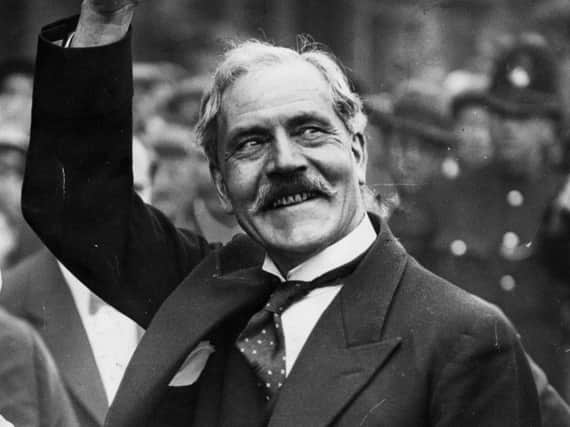On this day 1924: A Scot becomes the UK's first working class Prime Minister


James Ramsay MacDonald, the first Labour Prime Minister of Great Britain, was born to Anne Ramsay, a housemaid, at 1 Gregory Place in Lossiemouth.
His father, James, was a ploughman working on a farm a few miles away.
Advertisement
Hide AdAdvertisement
Hide AdAccording to Spartacus Educational, his mother's family objected to the pair marrying given their strong Calvinist beliefs. Despite the birth out of wedlock, the couple were exonerated by the local free kirk as they did not live in sin. The surrounding area was well used to the arrival of illegitimate children.
The young MacDonald went on to lead minority Labour governments in 1924 and then from 1929 - 1931.
As a child he went to the parish school at Drainie and was appointed as a pupil teacher, aged 12. He kept the job for a further six years.
He had been destined for a life working the land, but educating others became his first calling. His inspiration came from those working around him, particularly the radicalism of the fisherman and farmers that surrounded him
His exposure to the left followed a posting to Bristol in 1885, where he was attuned to the thinking of the Social Democratic Federation. In London the following year he joined the Fabian Society, worked in office jobs and studied for a science degree in his spare time but his health was poor.
He joined the new Independent Labour Party in 1894 and was defeated as a parliamentary candidate the next year for the first time. In 1906, he won a seat for the Labour Representation Committee, the true predecessor to the Labour Party.
The country's support for the Great War cost him his popularity, however, with MacDonald force to resign after claiming Great Britain was morally wrong to declare war on Germany. He was defeated in 1918 but returned to parliament four years later, when he was chosen to lead the Labour opposition
Advertisement
Hide AdAdvertisement
Hide AdAlthough the Conservatives remained the largest party in Parliament, they were outnumbered by Labour and Liberals for the first time with Asquith, the Liberal leader, offering to support MacDonald.
On January 22 1924, MacDonald became prime minister and also foreign secretary.
In that first year of leadership, Great Britain granted recognition to the Soviet regime in Russia; the Geneva Protocol for security and disarmament was initiated; and the threat of violence in Ireland was averted when the British government agreed to cancel the debt owed by the Irish Free State, in return for the Free State’s abandonment of its demand for the six northern counties, according to Encyclopedia Britannica,
Labour returned an overall majority to parliament in 1929 with MacDonald returned as Prime Minster. However the worldwide economic depression sorely tested the vision of the cabinet, He offered to resign in 1931 and finally, he exchanged offices with Conservative Stanley Baldwin.
MacDonald died on a sea crossing to South America on May 28, 1937.
